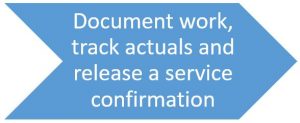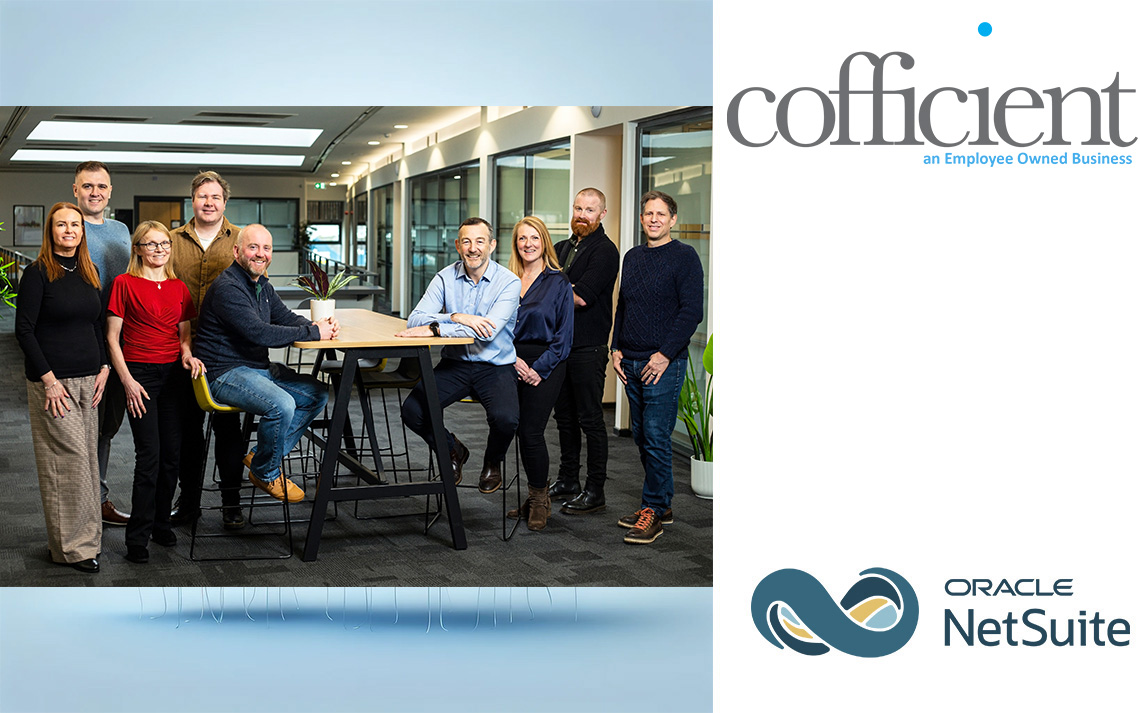
Customer Contract Management in SAP Business ByDesign
Discover The Customer Contract Management Business Process in SAP Business ByDesign
Last week we took a look at the Marketing to Opportunity business process within SAP Business ByDesign where we talked through creating a target group, executing a campaign, creating a lead and developing an opportunity. In this next blog we will look at the Customer Contract Management business scenario where you can create and manage contracts.
In addition, the following features are provided:
- Seamless integration with service request and service confirmation processing, allowing you to fulfill and confirm services carried out for a contract
- Invoice schedules for contract items
- Generation of standard contracts from sales orders, using contract templates
- Price agreements for items sold on a time and material basis
This scenario incorporates business functions from related areas that directly support service delivery for contracts, such as processing due items and payments in Financial Management.
Let’s look at the steps involved.
– Creating a Sales Order

The Creating a Sales Order business process enables you to create a sales order with fixed terms and price conditions when a customer orders products or services. You enter the necessary details in the order such as the account, the products or services, the requested date, and customer information as additional text.
If a contract is to be sold, for example together with a physical product as a warranty extension or a maintenance contract, you can enter a specific item into the sales order. From this item, a contract is generated automatically using a contract template.
Optionally, the sales order can then be approved.
– Creating a Customer Contract

In the Creating a Customer Contract business process, you create a customer contract for services, expenses, or entitlements. This can be done on the basis of a contract template whose data is copied to the new contract. If a contract is sold via a sales order, a contract template is mandatory. Or you enter details manually such as start and end dates, renewal and cancellation rules, service level, and the service, expense, or entitlement you are selling. When an account requires support and a service request is created, the system checks if the affected product in the service request is covered under contract, and relevant information such as service levels are then taken into account. Contract items sold on time and material basis are later processed using standard service confirmation functions.
Cancellation and renewal of items are handled according to rules that you define in the contract.
– Executing Services

In the Executing Services business process, once the order has been released for execution and preparations made, the service performer travels to the customer to perform the requested service, or performs the service working remotely or in a repair centre.
– Confirming Service Execution – With a Service Confirmation

The Confirming Service Execution business process enables the service performer to complete the job, after executing the service, by creating a service confirmation directly from the contract to report back actual times.
This service confirmation is also used to record additional information about the work performed, the root cause of a product problem, warranty information, or feedback with the aim to increase product quality.
After the service confirmation document has been released, the system automatically triggers customer invoicing and passes necessary information to Financial Management. For fixed price services, where there is no service confirmation, completion is confirmed directly in the customer contract.
– Creating Customer Invoices

In the Creating Customer Invoices business process, the system creates invoice requests automatically after services have been performed or products delivered. You must transfer these requests to an invoice which is sent to the customer and passed to Cash Flow Management. You can do this manually or with an invoice run. It is possible to combine several requests into one invoice or split them into several invoices.
– Processing Externally-Initiated Payments by Incoming Bank Transfers
![]()
The Processing Externally-Initiated Payments by Incoming Bank Transfer business process enables customer invoices, for which payment is initiated externally, to be paid by bank transfer.
– Creating Down Payment Request – Customer

The Creating Down Payment Requests – Customer business process enables you to request down payments from the customer, before services are performed. The sales representative creates and releases a down payment request for this purpose.
– Processing Receivables and Payments
![]()
The Processing Receivables and Payments business process enables the processing of incoming payments, initiated either internally by your company or externally by your customers. The process uses country-specific payment methods.
Payments can be made manually, or automatically via a payment run in which the system proposes open items for payment. You then release the payments and the system posts them to accounting. You create the payment medium, either manually or as part of an automatic run, using files for direct debit or credit card payments. It is also possible to upload credit card statements to pre-confirm payments. When the payments are credited to the company’s bank account, the bank statement is entered in the system, either uploaded electronically or entered manually, before being confirmed. If payments are initiated externally by the customer, the bank statement provides notification of payment. The payments are matched in the system to the open invoices before being cleared.
Selling and Managing contracts in SAP Business ByDesign®
- Contributes to new revenue streams from managed service operations and support activities
- Manages all aspects of the contract through creation, service provisioning, renewal and cancellation, invoicing, and financial consistently to ensure the operating efficiencies
- Avoids off-line contract management and information silos by this being a standard part of the business systems.
- Provides complete profitability analysis of contracts so that their future pricing and Service Level Agreements can be managed for profitability.
- Provides a continued relationship with the customer for service which can help increase loyalty and provide stability to financial flows for the company.
- Standard contracts can be sold and generated directly from sales orders.
To find out more about SAP Business ByDesign’s business processes, get in touch.



